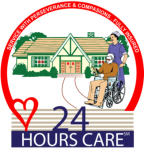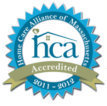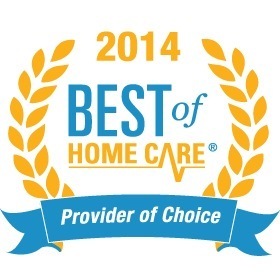Cancer is the uncontrolled growth of abnormal cells in the body. Cancer develops when the body’s normal control mechanism stops working. Old cells do not die and cells grow out of control, forming new, abnormal cells. These extra cells may form a mass of tissue, called a tumor. Some cancers, such as leukemia, do not form tumors.
In 2016, approximately 1,685,210 new cases of cancer were estimated to be diagnosed in the United States and that 595,690 people would die from the disease.
The most common cancers in 2016 were projected to be breast cancer, lung and bronchus cancer, prostate cancer, colon and rectum cancer, bladder cancer, melanoma of the skin, non-Hodgkin lymphoma, thyroid cancer, kidney and renal pelvis cancer, leukemia, endometrial cancer, and pancreatic cancer.
Cancer can occur anywhere in the body. In women, breast cancer is most common. In men, it’s prostate cancer. Lung cancer and colorectal cancer affect both men and women in high numbers.
The three main treatments are:
- Surgery: directly removing the tumor
- Chemotherapy: using chemicals to kill cancer cells
- Radiation therapy: using X-rays to kill cancer cells
Cancer prevention: 7 tips to reduce your risk
Concerned about cancer prevention? Take charge by making changes such as eating a healthy diet and getting regular screenings. It’s well-accepted that your chances of developing cancer are affected by the lifestyle choices you make.
Consider these seven cancer prevention tips.
- Don’t use tobacco
Using any type of tobacco puts you on a collision course with cancer. Smoking has been linked to various types of cancer — including cancer of the lung, mouth, throat, larynx, pancreas, bladder, cervix and kidney. Chewing tobacco has been linked to cancer of the oral cavity and pancreas.
- Eat a healthy diet
- Eat plenty of fruits and vegetables.
- Avoid obesity.
- If you choose to drink alcohol, do so only in moderation.
- Limit processed meats.
In addition, women who eat a Mediterranean diet supplemented with extra-virgin olive oil and mixed nuts might have a reduced risk of breast cancer.
- Maintain a healthy weight and be physically active
As a general goal, include at least 30 minutes of physical activity in your daily routine — and if you can do more, even better.
- Protect yourself from the sun
Skin cancer is one of the most common kinds of cancer — and one of the most preventable. Try these tips:
- Avoid midday sun.
- Stay in the shade.
- Cover exposed areas. Wear tightly woven, loose fitting clothing that covers as much of your skin as possible.
- Don’t skimp on sunscreen. Use generous amounts of sunscreen when you’re outdoors, and reapply often.
- Avoid tanning beds and sunlamps.
- Get immunized
Cancer prevention includes protection from certain viral infections.
- Hepatitis B. Hepatitis B can increase the risk of developing liver cancer. The hepatitis B vaccine is recommended for certain high-risk adults — such as adults who are sexually active but not in a mutually monogamous relationship, people with sexually transmitted infections, intravenous drug users, men who have sex with men, and health care or public safety workers who might be exposed to infected blood or body fluids.
- Human papillomavirus (HPV). HPV is a sexually transmitted virus that can lead to cervical and other genital cancers as well as squamous cell cancers of the head and neck.
- Avoid risky behaviors
Another effective cancer prevention tactic is to avoid risky behaviors that can lead to infections that, in turn, might increase the risk of cancer. For example:
- Practice safe sex. Limit your number of sexual partners, and use a condom when you have sex.
- Don’t share needles. Sharing needles with an infected drug user can lead to HIV, as well as hepatitis B and hepatitis C — which can increase the risk of liver cancer.
- Get regular medical care
Regular self-exams and screenings for various types of cancers — such as cancer of the skin, colon, cervix and breast — can increase your chances of discovering cancer early, when treatment is most likely to be successful.
Take cancer prevention into your own hands, starting today. The rewards will last a lifetime.
HOW 24 HOURS CARE CAN BE OF HELP
Cancer patients have unique and challenging needs that need attention. We can help people with cancer perform their day-to-day routine as well as deal with uncomfortable effects of cancer treatment. Some of the many ways include:
- Physical assistance: our caregivers can assist in changing positions and moving around the house.
- Personal hygiene: our caregivers can assist patients in the routine personal activities; including going to the toilet and changing soiled linen and clothing.
- Meal preparation: our caregivers and home companions can be in charge of cooking and meal preparation.
- Care coordination: Home health nurses can coordinate with home companions of the patient to ensure continuity of care.
- Medications: Caregivers can also assist cancer patients take their medications under the direction of a doctor or nurse.
- Other tasks: Extra services include running simple errands and doing light household tasks. Some cancer patients just need someone to talk to and feel safe with at home when family members are away.
Chances are that you know someone close, perhaps a friend or family member, who is struggling with cancer. 24 hours care can assist your loved ones in their daily battle against cancer. These services provided in familiar surroundings at home can make a big difference.
References



















